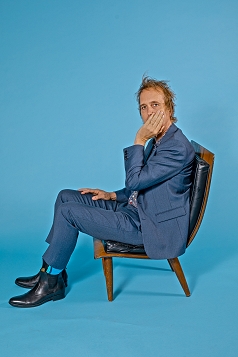Huffington Post
A Conversation with Chuck Prophet
Mike Ragogna: Hi Chuck. What was your plan approaching your new album Temple Beautiful?
Chuck Prophet: I knew I wanted to make a rock ‘n’ roll record, a guitar record, and then somehow, I got the idea of digging into the local lore of San Francisco, which is endless. I was writing with my friend Kurt, aka, Klipschutz, and when we tapped into that, the ideas began to flow. On a good day, an idea might actually grow up into a song. Ultimately, we leaned on the more mythical side of the street.
MR: San Francisco must mean a lot to you.
CP: San Francisco means a lot to a lot of people, and yeah, I am one of them. I mean, everybody comes here from everywhere for all the obvious reasons, and some maybe not so obvious. There are so many different cities packed into seven square miles, and they intersect and overlap. I guess you could say I wasn’t very culturally aware when I was growing up in Richard Nixon’s hometown. Then I moved around. Ended up in San Francisco going to school. Joined a band. Started to travel, saw some things. Fast forward a little and here I am. What I mean to say is that San Francisco is an education. It’s an education on different kinds of buildings, food, people, races, colors, sexes and the like. It opens your eyes.
MR: How did you assemble the cast of characters that appear with you?
CP: Once the songs were there, it fell together. I played guitar on a session where the drummer was Prairie Prince. He had that feel, you know? So I reached out to him. He’s got experience to burn and he still plays like a teenager. So that was the groove. Very teenage. James DePrato plays guitar in my band and together, we know how to make it sound like one big guitar. Rusty Miller played bass. And Stephanie Finch, my wife and long time partner in crime, brought her thing—singing and playing some keyboards here and there. Brad Jones produced and engineered. It’s a much less layered record. The guitars are pretty graphic. Even the cover art is just black and white. Honestly, I was pretty confident with the songs and just didn’t feel the nagging need to add more than that.
MR: This is your twelfth album, and many of your contemporaries haven’t made it past half of that. What’s your secret?
CP: No secrets. I guess I’m lucky that I’ve been able to stay interested in the whole thing. Writing songs and making records and kicking the songs around on the bandstand. There have been times where I wasn’t that excited and it showed. There are other things to do. I’m trying to get some hobbies in fact. Yeah, anyway, to wake up excited about what you’re doing is a gift, I suppose.
MR: Q Magazine said you are “... a sparky songwriter worthy of greater attention.” Mojo said, “Prophet delivers with quixotic swagger and declamatory sneer.”
CP: Yeah, that sounds pretty good. I’ll take it. I’ve been known to write my own blurbs, but that one is cool. Thanks for not choosing some of the others, by the way. I need the love. Every time I’m done making a record, I suggest that the promotional department gather in a circle, join hands and pray. Then we dig up some old quotes for the bio, book gigs anywhere anyone will have us, and hope for the best. My records have never really sold that much. I guess I should feel bad about that? I’m sorry I brought it up.
MR: (laughs) In your opinion, how does your music these days compare to your Green on Red days?
CP: Not that much different. Dan Stuart and I were always looking for trouble. And I guess I’m still out there standing over steaming manholes.
MR: What are your thoughts about the old Paisley Underground versus these days?
CP: A lot of great music came out of that time. If you look at what was on MTV or the radio, it’s amazing that we got record deals. I think The Bangles really ran with it, and I hear they’re still making great music and have a really great live show these days. I wanted to go see them play at The Fillmore recently, but I missed them when they were in town. But the scene… I don’t know. I think it was pretty short-lived if you think about it. But those years in a van with Green On Red were wild. No one knew where they’re next big chunk of hash was coming from. Now, I’m into lunch. Speaking of which, mind if I give a shout out to Split Pea Seduction on 6th Street? There might be a free crostata in it for both of us!
MR: (laughs) Thanks. Okay, “Willie Mays Is Up At Bat” must speak to the baseball fan in you? What’s the story behind that song?
CP: I’m all for the Giants. No matter what, actually, I always root for the home team. For the album, though, we knew we needed a hero. Any myth needs a hero. And you can’t beat Willie Mays. Talk about larger than life. I mean, at the downtown stadium, there’s a bronze statue of him 10 feet tall. The greatest center fielder that ever lived. Of course we had to go and mix him up with a bunch of characters he wouldn’t be caught dead with.
MR: Such as?
CP: Oh, you know, Carol Doda, Laffing Sal, Bill Graham, Jim Jones, Bugs Bunny, Daffy Duck—that crowd.
MR: (laughs) Can you also go into the story behind “Castro Halloween”?
CP: The Castro District is world-famous, isn’t it? And Halloween there tends to be a party and a half and lasts ‘til dawn. I live four or five blocks away, leading my quiet married existence, watching reruns of The Wire when the biggest dress-up party west of Berlin is in full swing. The song triesto bottle some of that magic and then set it free. I think my guitar solo at the end is longer than all the verses put together. It was hard to fade it.
MR: How often do you feel like Jesus, you know, like the song with that title?
CP: Not often enough. That one is dedicated to the Albion, which used to be on the corner of an alleyway off 16th Street, in the Mission District. There was a backroom for music. It was a dive. It was a firetrap. It was heaven. We used to play in that backroom. Sometimes for like four nights in a row. And it was magical. It was a scene that only lasted so long. The title of the song refers to the way I felt when I met my wife and she looked at me that “special way.” Stephanie used to play the upright piano back there and sing the best harmonies. I always liked the sound of our voices together. Made me feel bigger than life.
MR: Can you go into Emperor Norton, who he is and why you wrote a song in his voice. Maybe people outside of San Francisco might need a little help.
CP: Compared to overseas, this whole country is still pretty new on the block. San Francisco wasn’t founded ‘til the mid-1800s. Emperor Norton came to town and proclaimed himself an Emperor and never paid for another drink or meal in his life. We tried to steer clear of him as a character on the record, but he insisted. And who were we to say no?
MR: Your songs were recorded by Heart and Solomon Burke. What did you think of the recordings?
CP: I love those covers. The song Solomon Burke cut, I wrote with Dan Penn. When I got a copy, I went over to Dan’s and we listened to it together. Solomon did these off the cuff ad libs at the end and I remember Dan really vibing on it. We listened to it a few times. It’s hard to top hearing Solomon Burke sing a song you did with Dan Penn! Heart was great as well. That song “No Other Love,” it only has about three lines of lyrics to it, and it’s been maybe my most popular song. Ann Wilson really sings it. And it’s pretty awesome. She is something else. Like a female Elvis or something.
MR: “No Other Love” was also included in the film P.S. I Love You. What did you think of how it was used?
CP: The film was a pretty forgettable chick flick. But people really responded to that scene, particularly young Latinas. So that’s been really cool. The film really connected with young girls full of that romantic longing. I think that it was real nice.
MR: What’s it like having your music on Californication and Sons Of Anarchy?
CP: It’s like money in the bank! Literally. And I like all those shows. So it’s about as win-win as it gets.
MR: You recorded with Warren Zevon. I imagine you were a fan. Do you miss him?
CP: I barely knew him, but yes, I did play on Life’ll Kill Ya, one of his later discs. I was a fan, am a fan, and can’t imagine I’ll ever stop listening to his songs. I’m sorry there won’t be any more of them. He was a tough character for sure. He had an incredibly quick wit. And you wouldn’t want his caustic wit pointed at you. He could be a cantankerous guy, but also very charming and always funny. At the time, I worried about his Mountain Dew intake. He’d show up in the morning with a grocery bag of cans… he was drinking like a case of it a day. And when he ran out, he’d get these splitting migraines.
MR: What advice do you have for new artists?
CP: Heck, I don’t know. Nikki Sudden once told me that Keith Richards told him that coffee is the absolute worst thing you can put in your body. Seriousness aside, I honestly don’t have any advice for anyone. I suppose if anything, pay attention. Try to be on time. Honor your commitments. Don’t waste other people’s time, especially the audience.
MR: What does your tour schedule and future look like?
CP: We’re gearing up for some quality time in the van. “Van Therapy,” we call it. The year is filling up fast. As to my future, is it okay if I pretend you didn’t ask that?
MR: Ask what? (Laughs.) Thanks so much for taking the time to be with us.
CP: My pleasure. Thanks
Tracks:
1. Play That Song Again
2. Castro Halloween
3. Temple Beautiful
4. Museum Of Broken Hearts
5. Willie Mays Is Up At Bat
6. The Left Hand And The Right Hand
7. I Felt Like Jesus
8. Who Shot John
9. He Came From So Far Away (Red Man Speaks)
10. Little Girl, Little Boy
11. White Night, Big City
12. Emperor Norton In The Last Year Of His Life (1880)
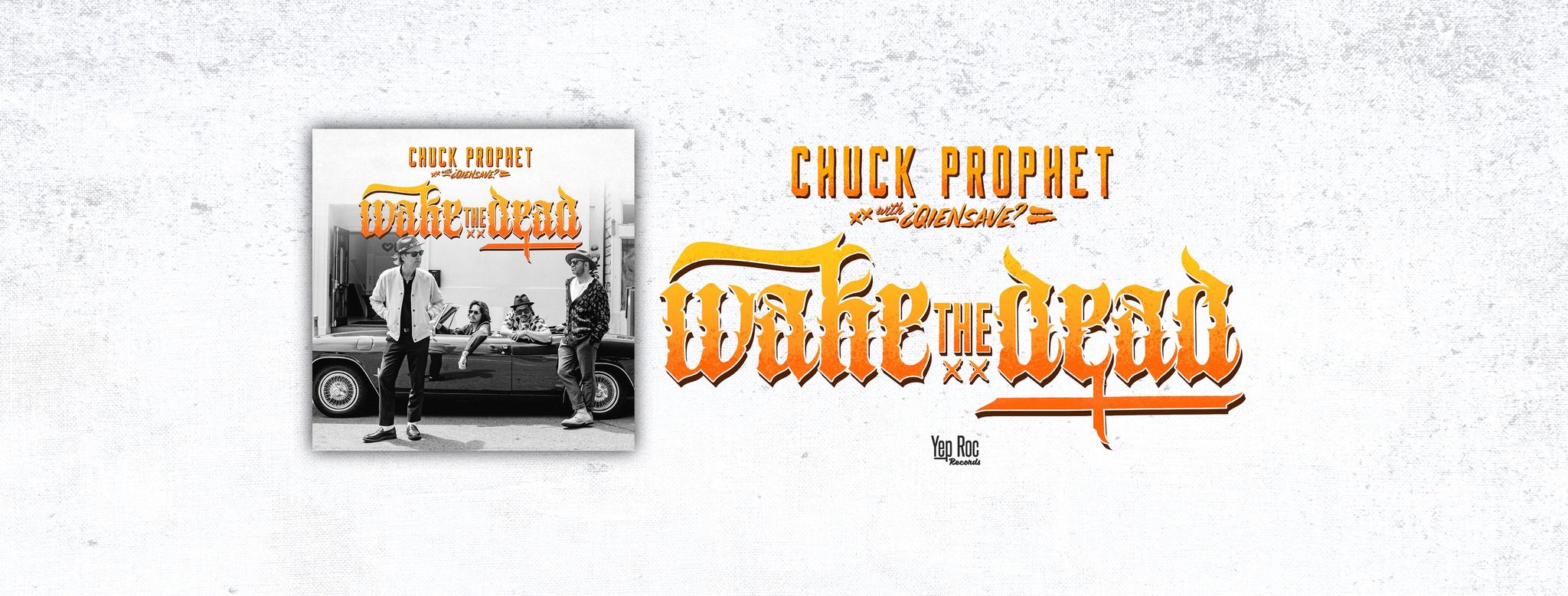

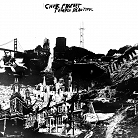



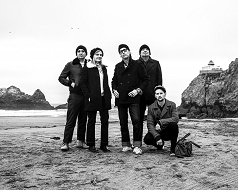
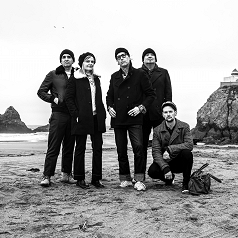
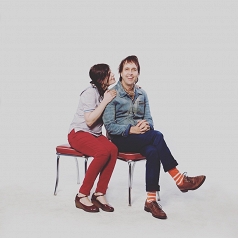
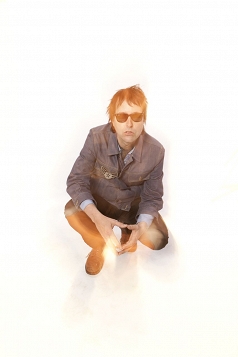

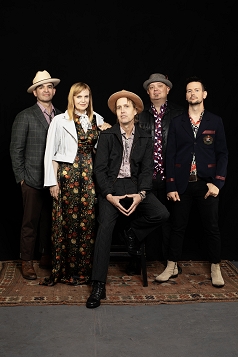
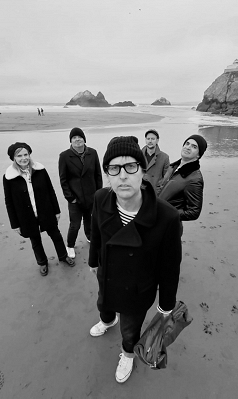
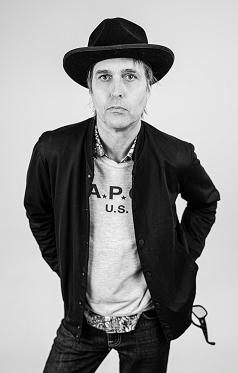
3_238_159auto_s_c1.jpeg)
